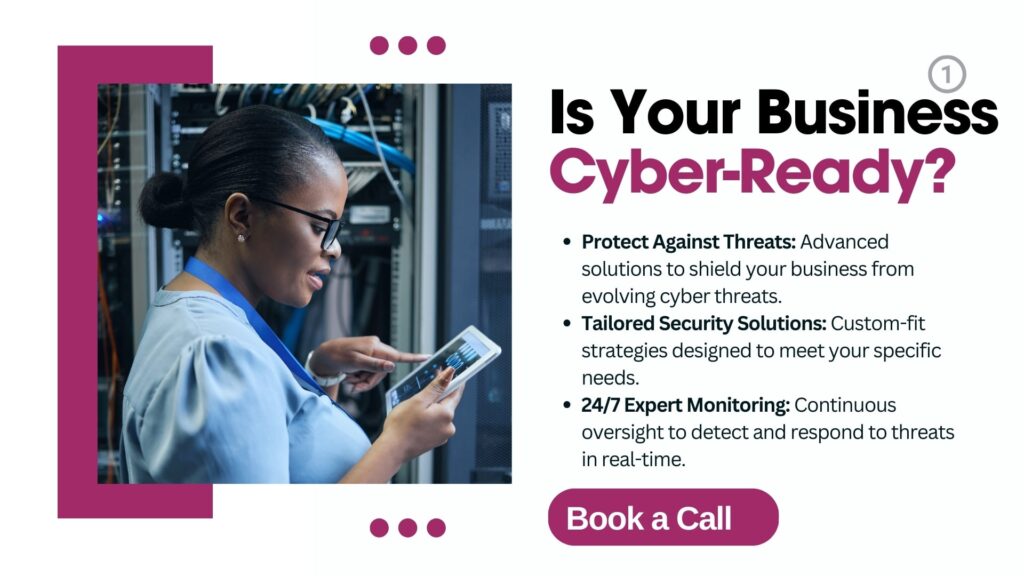
Cybersecurity in Kenya has become a cornerstone of safeguarding information and maintaining trust in online transactions. As technology evolves, so do the threats that target organizations. This article delves into the importance of cybersecurity, how it functions, and its relevance for businesses of all sizes, with a special focus on the Kenyan market.
What is Cybersecurity?
Cybersecurity refers to the practices, technologies, and processes designed to protect networks, devices, programs, and data from attack, damage, or unauthorized access. This protection is crucial as cyber threats can compromise sensitive information, disrupt operations, and lead to significant financial losses. Key components include:
- Network Security: Safeguarding the integrity of networks.
- Information Security: Protecting data from unauthorized access.
- Operational Security: Ensuring operational processes are secure.
Common Cybersecurity Threats
Organizations worldwide, including Kenya, face a variety of cybersecurity threats:
- Phishing: Deceptive attempts to obtain sensitive information by pretending to be a trustworthy entity.
- Malware: Malicious software designed to harm, exploit, or otherwise compromise an information system.
- Ransomware: A type of malware that locks the victim’s data, demanding a ransom to restore access.
- Data Breaches: Unauthorized access to confidential data, often leading to significant financial and reputational damage.
In Kenya, these threats have manifested in incidents such as major data breaches and ransomware attacks affecting SMEs and financial institutions.
How Cybersecurity Works
Cybersecurity involves a combination of technologies, processes, and practices designed to safeguard digital assets. This includes:
- Firewalls: Act as barriers between trusted and untrusted networks.
- Encryption: Converts data into a secure format that can only be read by authorized users.
- Intrusion Detection Systems (IDS): Monitor network traffic for suspicious activity.
- Antivirus Software: Detects and removes malicious software.
By implementing these tools and practices, businesses can protect themselves against various cyber threats.

The Importance of Cybersecurity in Kenya
Kenya faces unique cybersecurity challenges due to the rapid increase in digital transactions and online services. Specific challenges include:
- Phishing, Ransomware, and Data Breaches: These are the most common types of cyber threats in Kenya, targeting both individuals and businesses.
- Recent Cyber Incidents: Notable incidents include a major data breach in a leading Kenyan financial institution and a ransomware attack affecting several SMEs.
These incidents highlight the urgent need for robust cybersecurity measures across all sectors in Kenya.
Cybersecurity for Small Business
Small businesses, often with less sophisticated security measures, are prime targets for cybercriminals. Implementing basic cybersecurity practices, such as regular updates, secure passwords, and employee training, can significantly reduce the risk of an attack.
The Future of Cybersecurity in Kenya
Cybersecurity will remain crucial as digital threats evolve. While AI and machine learning will enhance security measures, they will not replace the need for human oversight and strategy. Businesses must continuously adapt to emerging threats and technologies.
Will Cybersecurity be Replaced by AI?
AI will enhance cybersecurity by identifying patterns and automating responses to threats, but it will not replace the need for human expertise. AI tools require human guidance to be effective and cannot fully replicate the strategic thinking required in cybersecurity.
Why Cybersecurity Awareness is Important
Awareness is a key component of a robust cybersecurity strategy. Educating employees about potential threats and safe online practices helps prevent incidents caused by human error, which is a common vulnerability in many organizations.
Who Does Cybersecurity Affect?
Cybersecurity affects everyone who uses digital technologies, from individuals and small businesses to large corporations and government entities. It is essential for protecting personal data, financial information, and organizational assets.
Who Needs Cybersecurity in Kenya?
Any entity that relies on digital systems and data needs cybersecurity. This includes businesses, government agencies, educational institutions, and individuals. Effective cybersecurity measures are crucial for safeguarding sensitive information and maintaining operational integrity.
Who Are Cybersecurity Experts?
Cybersecurity experts are professionals skilled in protecting systems and data from cyber threats. They may hold certifications like CISSP or CEH and possess expertise in areas such as threat analysis, risk management, and incident response.

When Did Cybersecurity Become a Big Concern?
Cybersecurity began to gain prominence with the rise of the internet and digital technologies. As cyber threats became more sophisticated, businesses and individuals recognized the need for robust security measures to protect against data breaches and attacks.
Cybersecurity When Traveling
When traveling, cybersecurity becomes particularly important due to the increased risk of data exposure. Using secure connections, avoiding public Wi-Fi for sensitive transactions, and ensuring devices are protected with strong passwords are essential practices for maintaining security on the go.
What Cybersecurity Problems Are You Solving?
Businesses face various cybersecurity challenges, including data breaches, phishing attacks, and ransomware. Addressing these problems requires a comprehensive approach involving prevention, detection, and response strategies.
Legal and Regulatory Frameworks in Kenya
There have been significant strides in creating legal frameworks to combat Kenya cybersecurity threats. Key regulations include:
- The Data Protection Act, 2019: Governs the processing of personal data.
- The Computer Misuse and Cybercrimes Act, 2018: Outlines offenses relating to computer systems and data.
Reporting Cybersecurity Incidents in Kenya
To report a cyber incident, individuals or businesses should contact the Cyber Crime Unit under the Directorate of Criminal Investigations (DCI) or report to the Communications Authority of Kenya (CAK).
Best Practices for Cybersecurity in Kenya
Practical tips for enhancing cybersecurity include:
- Strong Passwords: Use unique and complex passwords; avoid using easily guessable information.
- Two-Factor Authentication (2FA): Add an extra layer of security to accounts.
- Regular Updates: Keep operating systems and applications up to date.
- Secure Wi-Fi Networks: Use strong encryption methods for Wi-Fi and avoid default settings.
- Employee Training: Conduct regular cybersecurity awareness training for staff.
Cybersecurity Solutions for Kenyan Businesses
Businesses can choose from a range of cybersecurity solutions:
- Antivirus Software: Protects against malicious software.
- Firewalls: Monitors and controls incoming and outgoing network traffic.
- Intrusion Detection Systems (IDS): Monitors network traffic for suspicious activity.
- Managed Security Services: Outsourced services that provide comprehensive security solutions.
Several IT solutions companies in Kenya specialize in implementing these cybersecurity measures, ensuring businesses remain secure.
Emerging Trends and Technologies for Cybersecurity in Kenya
Kenya is adopting advanced technologies such as Artificial Intelligence (AI) for threat detection and response. There is also a growing interest in blockchain for securing transactions and securing IoT (Internet of Things) devices. The cybersecurity landscape in Kenya is expected to become more sophisticated, with increased collaboration between government bodies and private sectors to combat cyber threats. Continuous investment in cybersecurity education and infrastructure will be critical in maintaining robust defenses.
Conclusion
Cybersecurity is a critical aspect of Kenya’s digital evolution. As Kenya cybersecurity threats become more sophisticated, staying vigilant and proactive is essential for individuals and businesses alike. By implementing best practices and leveraging advanced technologies, you can protect your digital assets and ensure a secure online environment.
By partnering with us, you gain more than just cybersecurity services; you gain a trusted ally in fortifying your digital defenses. Our team of experts is dedicated to safeguarding your digital assets with cutting-edge technology and personalized strategies. We offer everything from proactive threat detection to 24/7 monitoring, ensuring that your business remains secure in an increasingly complex cyber landscape. Let us be your guide in navigating the evolving world of cybersecurity, so you can focus on what you do best—growing your business with confidence. Contact us today to discover how our solutions can make a difference for your business and ensure a secure digital future.










